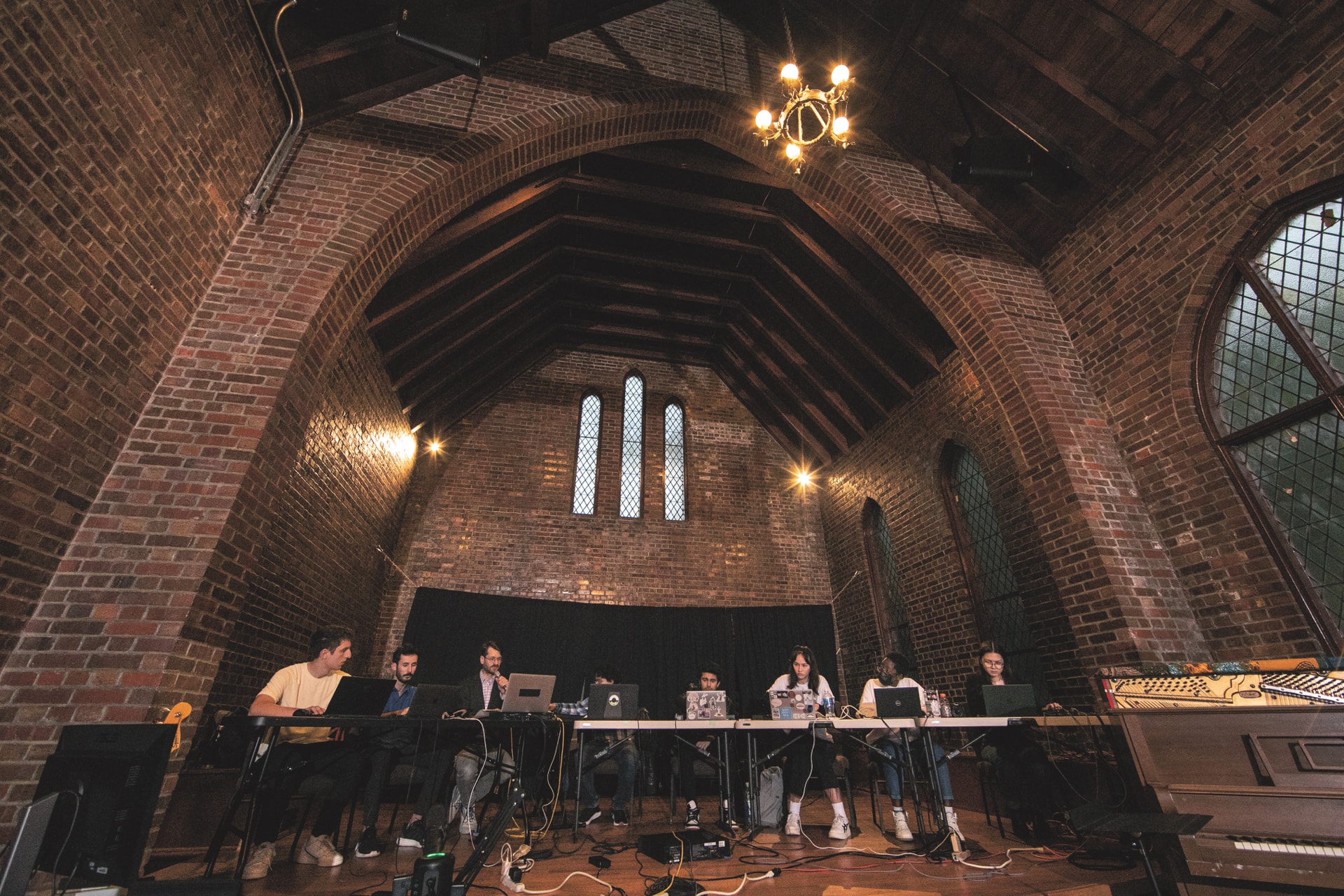In the dim nave of the NorthStar Church of the Arts on Geer Street in Durham, a dinnertime audience of a few dozen listened as sounds became music. Vibrations, tones, static and melodies mixed, bouncing off the bricks of the walls and the wooden beams and ceiling.
This was the first performance of the Duke Laptop Ensemble, and churchlike it did not sound. The music came from speakers connected to eight laptops on tables on the dais, and from a voice box through which composer and music composition Ph.D. candidate Brooks Frederickson sang. The song eventually became recognizable as the Beatles’ “Within You Without You,” in an especially mysterious and manipulated presentation.
Frederickson created the ensemble through the Bass Digital Education Fellowship, a graduate school program supporting projects that explore new ways of learning, including digital, and that also connect with undergraduates. “I love to perform myself with my computer,” he said. “So engaging students with that was sort of the idea I came up with.” He made a video call for students, which the music department and other venues shared. Comfortable with new approaches, the music department encouraged the new class: It resides in the music department’s chamber music program. “It’s us and string quartets,” Frederickson laughed.
The ensemble class ended up with seven students and required the students to do more than just study and learn about electronic music techniques. Frederickson commonly gave the students sounds from his work as a starting point for their own musical creations. He generates sounds by instrument, then manipulates them sonically through various music software suites. From there other programs enable composers to continue to change the sounds, as well as loop them, manipulate them into rhythms and phrases, and turn them into music. Frederickson’s sounds got the students started, but he demanded more of them. He wanted exploration. “I told the group that they needed to make music,” he said. “It can’t just be all my music. And they took that brief and just made incredible things with it.”

The performance started with a piece by doctoral candidate Brittany Green involving rhythms and recorded voices as well as manipulated sounds. The ensemble then performed six pieces, many based on sounds that Frederickson had developed but that did not make the final cut for his dissertation.
One piece, “Moon Wax,” came from senior Courtney Dantzler, who played the piano and accompanied herself on her computer. She is majoring in music and computer science, “So I think this was a natural fit for me,” she said. “But the most interesting thing is that I haven’t actually done an electronics piece before.” For her piece, she said, she took her usual composition strategy of starting at the piano but then selected clips for repetition and manipulation, “so it created this sort of seamless transition.” She loved the course: “We’re all coming from different musical backgrounds, and I thought it was great to be sort of accepted in a way, like, ‘I can make a dumb sound on this piano, and it can sort of be validated because, you know, this is a space where you can explore even the ugliest, craziest sounds.’
For Dantzler, bringing music into the future is part of the joy. “That’s what computers do,” she said. “They create the sounds that sort of don’t exist.”

